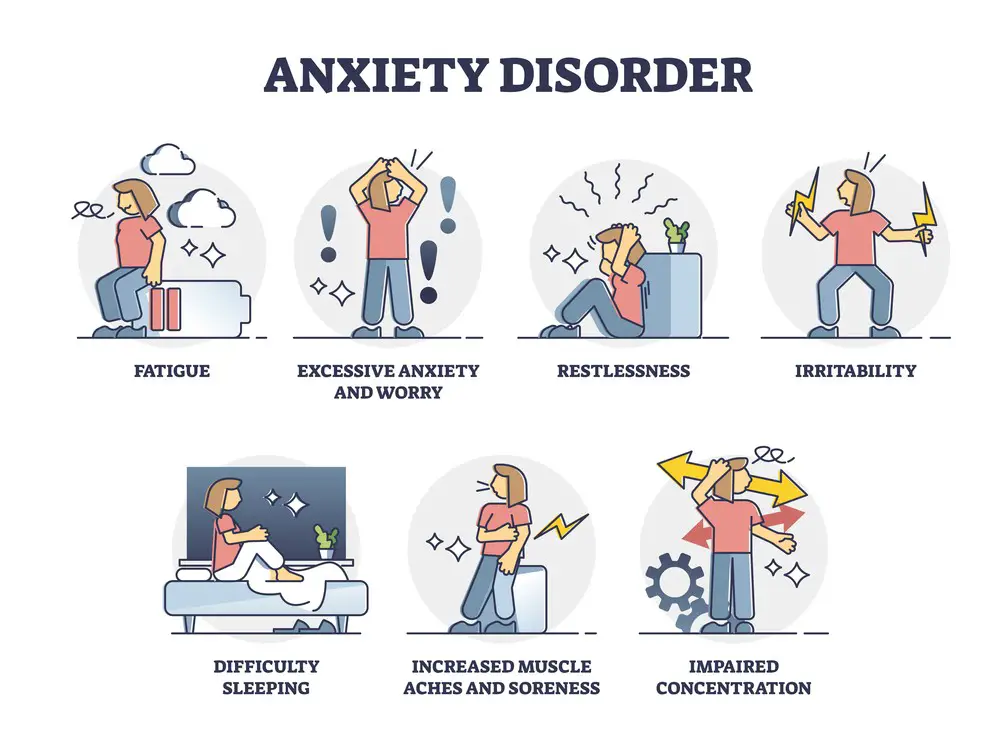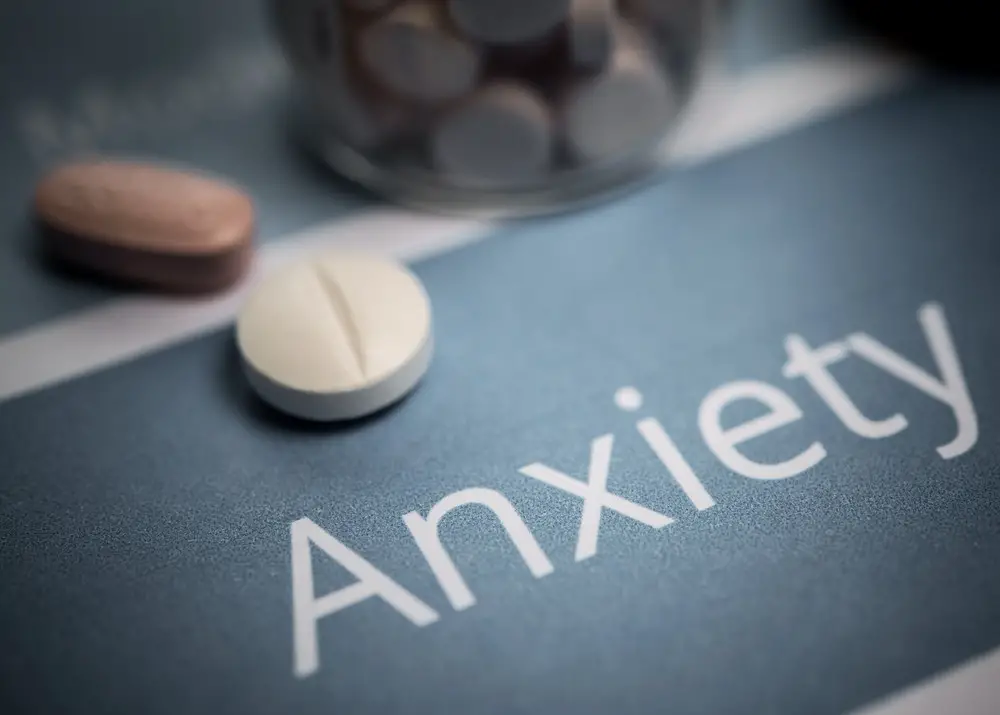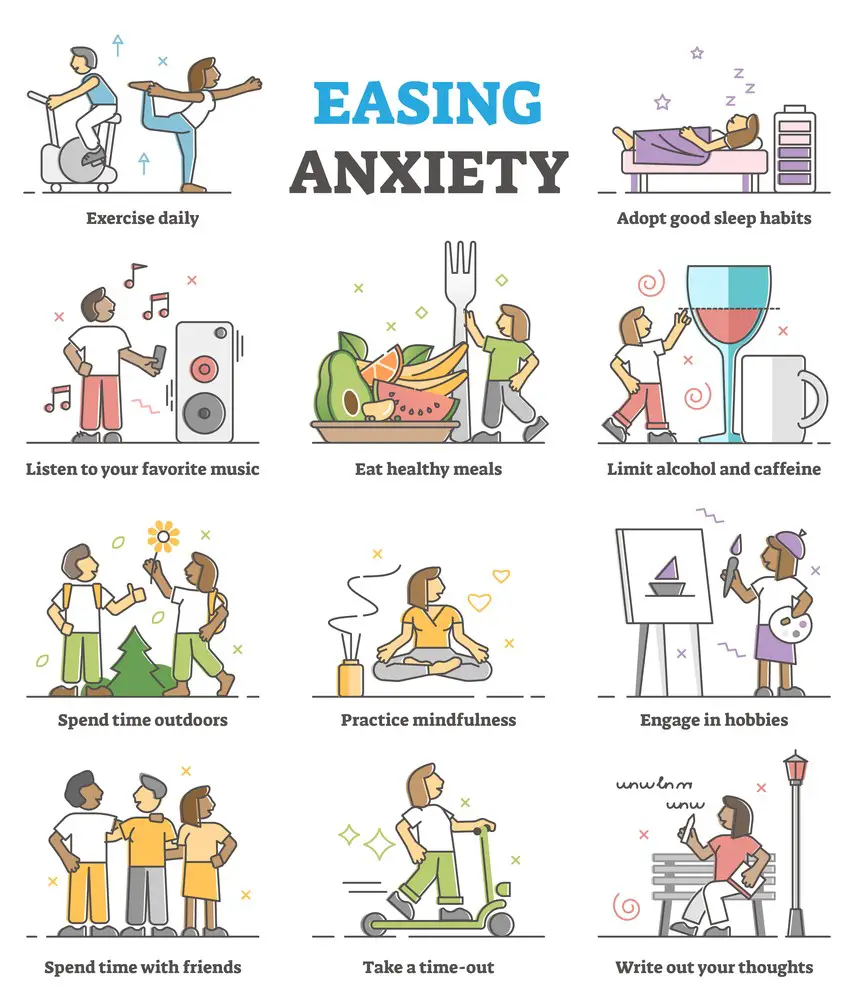As a BetterHelp affiliate, we receive compensation from BetterHelp if you purchase products or services through the links provided
Managing anxiety can be a complex journey, and finding the right treatment plan is pivotal for feeling better. If you’re considering Wellbutrin, known generically as bupropion, you might already know that it’s commonly prescribed for depression and can also be effective for anxiety in some cases. Though not a first-line treatment for anxiety disorders, Wellbutrin has properties that may help alleviate your symptoms.
Combining medications can enhance therapeutic outcomes when a single drug isn’t sufficient. Physicians may prescribe Wellbutrin alongside other antidepressants or anxiety medications to provide a more comprehensive treatment approach. It’s crucial to navigate this process under medical guidance, as each individual’s response to medication can vary widely. Your healthcare provider will consider your specific health needs, the nuances of your anxiety or depression, and Wellbutrin’s mechanism of action to tailor a regimen that aims for the best results with minimal side effects.
Key Takeaways
- Wellbutrin can be an adjunct in treating anxiety when used with other medications.
- Personalized medical guidance is essential to manage anxiety effectively with Wellbutrin.
- It’s essential to monitor for side effects when combining Wellbutrin with other treatments.

Understanding Anxiety and Depression
Anxiety and depression can often be two sides of the same coin, and understanding them is pivotal. In essence, anxiety is a natural stress response but can become overwhelming. When you face generalized anxiety disorder (GAD), it’s like having excessive worry about everyday events, even without an apparent reason. On the other hand, panic disorder involves sudden, intense episodes of fear that may trigger severe physical reactions despite no real danger or apparent cause.
Depression, specifically major depressive disorder, goes beyond bouts of sadness. It is a persistent feeling of deep sorrow and a lack of interest in previously enjoyed activities. Your sleep, appetite, and energy levels may all be affected. It’s essential to spot the symptoms early:
- Changes in appetite or weight
- Difficulty sleeping or sleeping too much
- Loss of energy or increased fatigue
- Difficulty thinking, concentrating, or making decisions
Remember, it’s not just about feeling blue; it’s a deeper, more pervasive experience. The two conditions often play off each other, complicating your well-being. When paired together, they make daily functioning a real challenge.
- Anxiety might present as constant worry.
- Depression leans more towards deep sadness or emptiness.
Recognizing these feelings and their impacts on your life is the first step toward managing them. If you find yourself in this boat, don’t hesitate to seek professional help. Managing these conditions often involves therapy, lifestyle adjustments, and sometimes, medication like Wellbutrin.

Overview of Wellbutrin
Wellbutrin, known by its generic name, bupropion, is a unique type of antidepressant. It’s classified as an atypical antidepressant because it differs in structure and function from other common antidepressants, like selective serotonin reuptake inhibitors (SSRIs). This medication works on the brain chemicals norepinephrine and dopamine, which are vital in regulating mood.
FDA Approval: Wellbutrin has been approved by the U.S. Food and Drug Administration (FDA) for the treatment of major depressive disorder (MDD) and seasonal affective disorder (SAD). It’s also sometimes used as an adjunct for smoking cessation.
Usage Tips:
- Always take Wellbutrin as prescribed by your healthcare provider.
- Don’t adjust your dosage without consulting with your doctor.
- Be patient; it can take several weeks to feel the full benefits.
Mental Health Impact:
Wellbutrin for Anxiety:
Although primarily an antidepressant, Wellbutrin is sometimes used off-label for anxiety management. It’s crucial to note that its effectiveness for anxiety is not as well established as for depression.
Side Effects:
Like all medications, Wellbutrin can cause side effects. Common ones include:
- Dry mouth
- Headache
- Nausea
- Insomnia
Treatment Considerations:
Surrounding Wellbutrin, you should be aware that it’s often most effective when combined with therapy and lifestyle changes. It’s not a cure-all, but it can play a critical role in your mental health treatment plan.
Key Takeaway: Remember to discuss with your doctor the potential benefits and risks of Wellbutrin, especially if you’re considering it as part of your anxiety treatment strategy. Your healthcare provider will help tailor the right treatment plan for you.
Wellbutrin’s Mechanism of Action
Wellbutrin, which is the brand name for bupropion, functions quite differently from other antidepressant medications. Unlike selective serotonin reuptake inhibitors (SSRIs), Wellbutrin primarily affects two other neurotransmitters: dopamine and norepinephrine.
- Dopamine: This neurotransmitter is often associated with feelings of pleasure and motivation. Wellbutrin helps increase dopamine levels in your brain by inhibiting its reuptake — which means it keeps dopamine hanging around longer to elevate your mood and help with focus.
- Norepinephrine: Like dopamine, norepinephrine plays a part in how energetic and focused you feel. By decreasing its reuptake, Wellbutrin can help you feel more alert and energetic.
What sets Wellbutrin apart is its action on these neurotransmitters without significantly affecting serotonin levels, which many other antidepressants target.
- Reuptake: This process is like the brain’s method of recycling. Neurons release neurotransmitters into the synapse (the gap between neurons) and then back them up to reuse them. Wellbutrin blocks the ‘recycling’ of dopamine and norepinephrine so they stay in your brain longer.
It’s worth noting that while Wellbutrin can be effective for dealing with depressive symptoms by targeting these two key neurotransmitters, it’s not primarily labeled for anxiety. However, due to its unique impact on brain chemistry, it might be helpful for certain types of anxiety, particularly when they’re part of co-occurring depression.
Key Takeaway: Wellbutrin offers a distinctive approach to lifting your mood and energy by enhancing the presence of dopamine and norepinephrine in your brain, which can indirectly influence anxiety symptoms.
 Combining Medications for Anxiety
Combining Medications for Anxiety
When you’re experiencing anxiety, Wellbutrin, known generically as bupropion, might not be the top-of-mind solution as it’s typically used to treat depression. Anxiety can often require different management strategies. But fear not; you’ve got options to consider.
- SSRIs: These are usually the go-to medications for anxiety.
- Escitalopram (Lexapro) and sertraline (Zoloft) are highly recommended.
- Citalopram (Celexa) can also be effective, though every person’s reaction varies.
Doctors sometimes pair Wellbutrin with an SSRI. This combination can balance out Wellbutrin’s stimulating effects with the soothing nature of SSRIs. If you’re already on Wellbutrin for depression, adding an SSRI can help target your anxiety symptoms directly.
Quick Tips:
- Never start a new medication without talking to a healthcare provider.
- It’s essential to monitor for side effects when combining medications.
- Patience is key; finding the right combination can take time.
Wellbutrin can be a part of multi-drug therapy for anxiety. However, consult a healthcare professional for the most suitable and safe choice.
Key Takeaway: Combination therapy may provide relief when one medication isn’t enough, so consider consulting with your healthcare provider if you feel Wellbutrin alone doesn’t fully address your anxiety.

Possible Side Effects of Wellbutrin
Wellbutrin, known generically as bupropion, is a medication primarily used to treat depression. Like all medications, it can come with a range of side effects. It’s essential for you to be aware of these so you can recognize them if they occur.
Common Side Effects:
- Dry mouth: Keeping hydrated and using sugar-free gum may help.
- Headache: Regular breaks from screen time and staying well-rested can be beneficial.
- Insomnia: Establish a relaxing bedtime routine and limit caffeine.
- Nausea: Eating small, frequent meals throughout the day can reduce this.
- Tremor: If mild, they may decrease over time; otherwise, consult your doctor.
- Dizziness: Rise slowly from sitting or lying down to help manage this.
Serious Side Effects:
- Seizures: Though rare, seeking immediate medical attention is critical if you experience a seizure.
Remember, not everyone will experience side effects, and they can often be managed. If you notice persistent symptoms affecting your daily life, it’s a wise choice to chat with your healthcare professional. They can offer further guidance or adjust your treatment plan if necessary. Their expertise can give you peace of mind and help you use Wellbutrin effectively while minimizing discomfort.
Wellbutrin and Other Health Conditions
When you’re considering Wellbutrin for anxiety, it’s crucial to understand how it interacts with other health concerns. This medication, also known as bupropion, is primarily used to treat depressive disorders but can be prescribed for a variety of conditions.
Seasonal Affective Disorder (SAD): Wellbutrin is often chosen to help combat the symptoms of SAD. Its stimulating effect can counter the fatigue and lethargy associated with this condition.
- Attention Deficit Hyperactivity Disorder (ADHD): While not a first-line treatment, Wellbutrin might be an option for ADHD. It can improve focus and reduce impulsivity.
Bipolar Disorder: Caution is advised here. Wellbutrin can be helpful in the depressive phase but may not be suitable if you have a history of manic episodes, as it could potentially trigger mania.
For Eating Disorders, it’s a mixed bag. Wellbutrin might help with binge eating disorder by reducing cravings. However, due to an increased risk of seizures, it’s generally not recommended if you have an eating disorder that involves purging.
If you’re looking to quit smoking, Wellbutrin can be a friend indeed. It’s approved for smoking cessation and can reduce nicotine withdrawal symptoms and the urge to smoke.
Remember, it’s essential to speak with your healthcare provider to see how Wellbutrin fits into your health panorama. They can give you a tailored approach that considers all your specific needs.
Key Takeaway: Wellbutrin can be effective for various conditions, but always consult your healthcare professional to ensure it fits your health puzzle best.
 Dosage and Medication Management
Dosage and Medication Management
When you’re prescribed Wellbutrin for anxiety, it’s essential to stick closely to the prescribed dosage to manage symptoms effectively. Your healthcare professional will start you on a low dose and gradually increase it to avoid potential side effects like trouble sleeping or agitation.
- Starting Dosage: Often low to minimize side effects.
- Incremental Increase: Your doctor may gradually increase the dose.
If you experience trouble sleeping, your doctor might adjust the timing of your dose. For instance, taking it in the morning could help reduce insomnia.
- Timing: Morning dosage may prevent sleep disturbances.
Agitation or feeling angered can be side effects of Wellbutrin. If they occur, it’s crucial to contact your healthcare professional immediately. They might adjust your dose or suggest an alternative therapy.
- Note: Report any increase in agitation or anger.
Missing a dose can happen. If you do, take it as soon as you remember unless it’s close to your next dose. In that case, skip the missed one and return to your routine. Don’t double up to make up for the missed tablet.
- Missed Dose Tip: Skip if close to the next dose; never double up.
Always consult with your healthcare professional before making any changes, and follow their guidance on managing your medication effectively.
- Always Consult: Your healthcare provider knows best.
Remember, staying on track with your prescribed regimen plays a pivotal role in managing your anxiety effectively. Keep a medication diary or set reminders to help you remember to take your Wellbutrin as recommended. Your well-being is worth that extra bit of effort.
Recognizing and Handling Adverse Reactions
If you’re pairing Wellbutrin with other medications for anxiety, it’s vital to watch for any adverse reactions. Here’s what to keep an eye on and how to respond:
Allergic Reactions
- Swelling or hives: If you notice sudden swelling, particularly around your face and throat, or hives appear, it’s vital to seek medical attention immediately.
- Breathing difficulties: Any trouble with breathing is a sign of a severe allergic reaction; call for emergency help immediately.
Mental Changes
- Hallucinations: Experiencing hallucinations is rare, but if it happens, contact your doctor. It’s essential to address these symptoms quickly.
Neurological Events
- Seizures: Even if you’ve never had a seizure before, Wellbutrin can increase the risk. Should a seizure occur, medical assistance is a necessity. Afterward, your doctor may advise stopping the medication or adjusting the dose.
Serious Side Effects
Keep in mind some side effects might signal serious conditions:
- A severe allergic reaction calls for immediate emergency care.
- Persistent hallucinations can profoundly impact your well-being and need prompt medical consultation.
- A seizure is a medical emergency; quick response is critical.
In the event of severe side effects, remember:
- Stay calm and keep yourself safe.
- Get immediate medical help.
- Follow your doctor’s instructions carefully after the event.
Key Takeaway: Your safety is paramount. At the first sign of a severe reaction, seek medical help and stay in close contact with your healthcare provider to ensure your health remains on track.
 Supplements and Alternative Support
Supplements and Alternative Support
When managing anxiety, Wellbutrin is sometimes not enough on its own. You might possibly consider coupling it with specific supplements to enhance your mental health. Always chat with your healthcare professional before starting any supplement, as they can guide you in the right direction for your unique needs.
- Omega-3 Fatty Acids: These are known to support brain health. You can find them in fish oil or algal oil supplements.
- Magnesium: Often called the calming mineral, it can help with stress and relaxation.
- Vitamin B-Complex: B vitamins contribute to proper nervous system function.
Regular exercise can also complement Wellbutrin, which naturally boosts mood and helps with weight control. If you’re struggling with anxiety, you’re not alone, and seeking help is a sign of strength, not weakness.
- Mindfulness Techniques: Practices like meditation or yoga can reduce stress and enhance your sense of well-being.
Remember, supplements are not a cure-all, but they might provide additional support for your mental health journey. Maintaining a balanced diet and a healthy lifestyle overall can work wonders for your state of mind.
Key takeaway: Before adding supplements, get the green light from a healthcare professional to ensure they’re a safe match with Wellbutrin and tailored to your health goals.
Lifestyle Considerations with Wellbutrin
Adopting a healthy lifestyle can enhance the benefits of Wellbutrin for managing anxiety. Here’s what you can focus on:
Alcohol:
- Limit intake: Combining alcohol and Wellbutrin can increase side effects.
- Stay aware: Monitor your body’s reaction when having a drink.
Weight Management:
- Keep track: Wellbutrin can affect your weight, so monitor any changes.
- Balance your diet: Aim for various nutrients to support overall health.
Diet:
- Eat wholesomely: Include fruits, vegetables, lean proteins, and whole grains.
- Stay hydrated: Drink plenty of water throughout the day.
Exercise:
- Schedule activity: Aim for at least 30 minutes of moderate exercise most days.
- Choose enjoyment: Pick activities you love to stay consistent.
Sleep:
- Prioritize rest: Aim for 7-9 hours of sleep each night.
- Establish a routine: Go to bed and wake up simultaneously every day.
Key Takeaway:
Incorporating these lifestyle tips can facilitate a more balanced foundation as you manage your anxiety with Wellbutrin. Remember, small daily changes can make a significant difference.
Conclusion and Key Takeaways
When considering the pairing of Wellbutrin with other treatments for anxiety, remember that this medication is commonly prescribed for depression and may help with certain types of anxiety. However, its effectiveness can vary from person to person.
- It’s essential to approach treatment under the guidance of a healthcare professional.
- Psychological support, such as therapy, is often recommended in conjunction with medication.
- Be proactive in your management strategies; establish a routine that includes cognitive strategies and, if suitable, mindfulness practices.
While Wellbutrin is not a first-line treatment for anxiety, it might be used when other medications have not worked adequately.
Key Takeaway: Always consult a healthcare professional to determine the most appropriate treatment plan for your needs.
Remember, every journey to well-being is unique and involves consistent, collaborative effort. Stay informed and be patient as you work towards finding the best approach to manage your anxiety.
Frequently Asked Questions
When considering the addition of medication to manage anxiety, it’s natural to have questions about what can be paired with Wellbutrin to enhance treatment. Below are focused answers to common queries regarding combinations that include Wellbutrin for anxiety.
What medications are commonly combined with Wellbutrin to manage weight loss?
Doctors often combine Wellbutrin with medications like naltrexone to aid weight loss in individuals with depression. This combo harnesses Wellbutrin’s ability to improve mood and counteract weight gain, a common side effect of other antidepressants.
Key Takeaway: Wellbutrin may be paired with naltrexone to both mitigate depression and support weight loss.
How effective is the combination of Zoloft and Wellbutrin for treating anxiety symptoms?
Combining Zoloft, a selective serotonin reuptake inhibitor (SSRI), with Wellbutrin can be effective for some patients. It addresses both serotonin and dopamine levels, which can provide a more comprehensive treatment of anxiety symptoms.
Key Takeaway: The combination targets multiple neurotransmitters, potentially offering enhanced anxiety relief.
What are some user experiences with adding Wellbutrin to their anxiety treatment regimen?
Many users report improved energy and concentration when adding Wellbutrin to their anxiety treatment. However, experiences can vary; some may have different responses or side effects.
Key Takeaway: User experiences suggest increased vitality, but individual reactions differ.
How do Wellbutrin and Zoloft work together to influence weight loss?
Wellbutrin can act as an appetite suppressant and increase energy levels, while Zoloft is less likely than other SSRIs to cause weight gain. Together, they may create a balanced effect on weight for those who are managing anxiety with medication.
Key Takeaway: This combination may help maintain or reduce weight while treating anxiety.
What is the recommended dosage when using a combination of Wellbutrin and sertraline for anxiety treatment?
Dosages of both Wellbutrin and sertraline (Zoloft) must be tailored to your specific needs. Generally, low initial doses are prescribed and carefully adjusted by your healthcare provider.
Key Takeaway: Personalized dosing is crucial; consult your healthcare provider for the best regimen.
Can incorporating Lexapro with Wellbutrin benefit patients with anxiety, and if so, how?
Yes, Lexapro paired with Wellbutrin can improve symptoms for some patients by acting on different brain chemicals associated with anxiety and depression. Monitoring by a healthcare professional is essential to optimize the benefits of both medications.
Key Takeaway: Combined action on serotonin and dopamine can enhance treatment outcomes, with professional guidance necessary.
- 3 Ways Wearing a Hat Can Help Lower Your Stress Levels - April 19, 2025
- Breaking the Silence: Why Men’s Mental Health Matters More Than Ever - April 15, 2025
- How to Transform a Home’s Patio Space into a Relaxing Space - March 23, 2025
This site contains affiliate links to products. We will receive a commission for purchases made through these links.


 Combining Medications for Anxiety
Combining Medications for Anxiety Dosage and Medication Management
Dosage and Medication Management Supplements and Alternative Support
Supplements and Alternative Support
